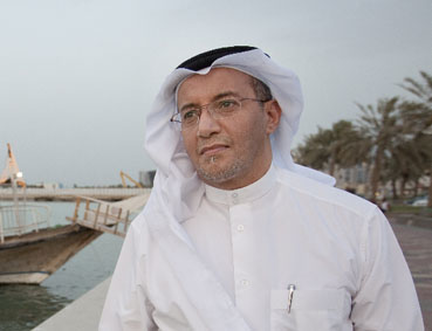Abdulaziz Al-Mahmoud

Abdulaziz Al-Mahmoud’s epic piece of historical fiction has already become a bestseller in the Arab world and, with a new translation, is set to make its mark on the English-speaking literary scene.
It is difficult to isolate one hero, or even one protagonist in The Corsair, but if it had to be done the mantle would probably fall to Erhama bin Jaber, the semi-mythical pirate – or Corsair - after whom the book is named. The world that Erhama bin Jaber inhabits is one in the midst of rapid change: British colonialism is taking root in the Middle East, bringing with it ambitious merchants and fame-hungry military leaders. Wahhabism is also on the rise and the state that will one day become Saudi Arabia is vying for power. Against this backdrop several other parties are trying to carve out a niche in this changing world, while ordinary people try to live their lives in an increasingly fractious society.
One of Al-Mahmoud’s great strengths as a writer is his ability to articulate a culture clash with equal sympathy to both sides. His writing gives a strong and compelling insight into the way tradition permeates the lives of Arabs on both sides of the law and at both ends of the economic spectrum, allowing the reader to appreciate the cataclysmic impact the rapid expansion British colonial interest must have had on their world.
However, it is clear that The Corsair wants to be, first and foremost, an adventure story, full of big characters fuelled by honour, ego and the pursuit of wealth, and there is a visceral joy in Al-Mahmoud’s heady descriptions of villains, heroes and a life lived at sea.
Adulaziz Al-Mahmoud was born in Qatar and studied at Clarkston University in New York for his degree in Engineering. He has written for Al Jazeera and worked as editor-in-chief of Alsharq.
The Corsair was in the running for our 2013 First Book Award.
Look & Listen
- 2025 Festival:
- 9-24 August
Latest News
 Communities Programme participants celebrate success of 2024
Communities Programme participants celebrate success of 2024



